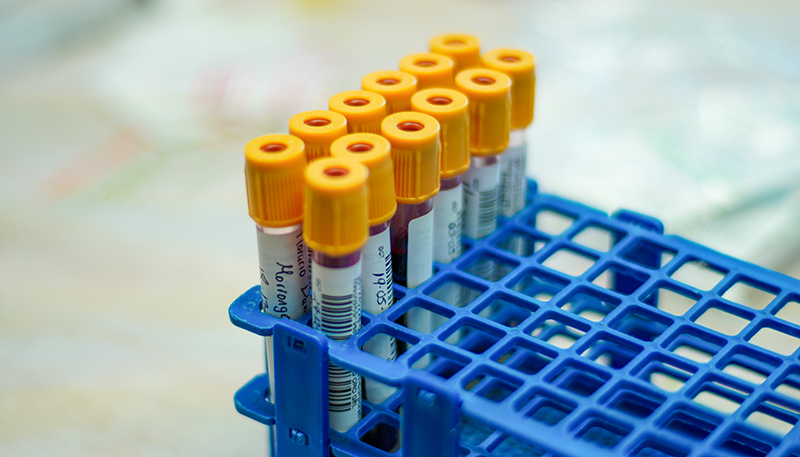Two Decades and Change
With the HIV travel ban lifted, the District will host the International AIDS Conference's return to the U.S. in 2012
The last time the United States hosted the International AIDS Conference, leading researchers were discussing ”combination drug therapy” as the likely future of HIV/AIDS treatment.
Randy Shilts, journalist and author of And the Band Played On, was writing columns about ”high-tech drugs like protease inhibitors.”
And the first President Bush was facing criticism from attendees of the 1990 conference in San Francisco, as well as those who boycotted the meeting, about the U.S. immigration policy restricting the travel of HIV-positive individuals to the country.
Nearly 20 years later – following the enactment of federal regulations that will end the travel ban in early 2010 – the International AIDS Society (IAS) announced Monday with Obama Administration officials that the 19th International AIDS Conference will be held in Washington, D.C., in 2012.
With D.C. being a city hit particularly hard by the HIV/AIDS pandemic, administration and city officials and advocates all saw ways in which D.C. could benefit from the conference – as well as how the conference could benefit from D.C.
D.C. Mayor Adrian Fenty, in attendance at the Nov. 30 event, said ”cities in this country are deeply affected” by HIV/AIDS and he hopes that the attention of the conference will lead more people to ”know their status, and get treatment better, and come away with better ideas for doing all those things.”
The conference – which organizers expect to bring together more than 25,000 scientists, researchers and other community and political leaders – is held, as president-elect of the IAS Elly Katabira said Monday, ”to evaluate recent scientific developments … and to chart a course forward to end the AIDS pandemic.”
The director of the White House Office of National AIDS Policy, longtime D.C. HIV/AIDS advocate and scholar Jeffrey Crowley, pointed out that the vast research resources of D.C. would greatly benefit the conference.
Crowley said that ”one of the challenges of having the conference overseas” was that it ”limited the ability of U.S. government scientists to participate.” But, now, ”having it in the backyard of NIH and other research centers” will create many more opportunities to involve the significant federal research and related entities to help make the conference a success.
In addition to announcing D.C. as the site for the 2012 conference, senior members of the Obama administration, including Secretary of State Hillary Rodham Clinton and Health and Human Services Secretary Kathleen Sebelius, were on hand to highlight the administration’s efforts on HIV/AIDS issues.
Clinton spoke about international efforts involving the second five-year plan for the President’s Emergency Plan for AIDS Relief (PEPFAR), begun in 2003 under President George W. Bush’s administration.
Against a backdrop of controversy surrounding a proposed ”Anti-Homosexual Bill” introduced in Uganda’s Parliament, Clinton strongly stated, ”We have to stand against any efforts to marginalize and criminalize and penalize members of the LGBT community worldwide,” criticizing such efforts as ”a step backwards on behalf of civil right” and also ”a step that undermines the effectiveness of efforts to fight the disease worldwide.”
Although Clinton did not mention Uganda by name, her global AIDS coordinator, Ambassador Dr. Eric Goosby, did in his discussion of PEPFAR’s five-year strategy. In talking about the sustainability of government programs, Goosby said that PEPFAR programs will ”support policy change to address discrimination, including – as the secretary noted earlier – the situation in Uganda.”
Although many of the remarks Monday focused on the conference and international efforts, Sebelius highlighted the passage of the Ryan White HIV/AIDS Treatment Extension Act and domestic efforts. In discussing meetings held across the country to talk with local groups about the disease, she concluded: ”What we know is we need to do a lot better job of reaching the groups that have been hardest hit by HIV/AIDS.”
Sebelius specifically pointed to the high rate of infection among African-American men in the District and even higher rate among gay men in that group as a stark example of where a ”better job” needs to be done.
A. Cornelius Baker, the chair of the Black AIDS Institute and former executive director of the National Association of People with AIDS, echoed her concerns, saying, ”We need to escalate our work…in those populations.
“…While we want all people everywhere to be concerned about the epidemic, we also want to acknowledge the epidemic is hitting some populations really hard.”
Baker was optimistic, though, that the action to remove the travel ban ”reflects us moving into the community of progressive nations” and shows ”the leadership that the U.S. plays in the global community.” Baker expressed hope that the media focus on the District during the conference will ”cause our leaders to look at how they are responding” to HIV/AIDS and lead to ”greater investment and attention” being paid to it.
Although there were several mentions on Monday of the 1990 conference in San Francisco and much talk about the return of the of the conference to the U.S. in 2012, there was no mention of the conference that took place in 1992.
The conference that year was held in Amsterdam – but only after plans to hold the conference in Boston were scrapped by the organizers due to the HIV travel ban.
The spokeswoman for the AIDS Action Council told the Boston Globe at the time, ”I don’t think we will see another international AIDS conference in this country until this mess is cleared up.”
Chris Geidner is a lawyer who writes at Law Dork, voted the Best Law Blog in 2005, and has written for The Atlantic Online, Advocate.com and Salon. You also can follow him on Twitter.
Support Metro Weekly’s Journalism
These are challenging times for news organizations. And yet it’s crucial we stay active and provide vital resources and information to both our local readers and the world. So won’t you please take a moment and consider supporting Metro Weekly with a membership? For as little as $5 a month, you can help ensure Metro Weekly magazine and MetroWeekly.com remain free, viable resources as we provide the best, most diverse, culturally-resonant LGBTQ coverage in both the D.C. region and around the world. Memberships come with exclusive perks and discounts, your own personal digital delivery of each week’s magazine (and an archive), access to our Member's Lounge when it launches this fall, and exclusive members-only items like Metro Weekly Membership Mugs and Tote Bags! Check out all our membership levels here and please join us today!























